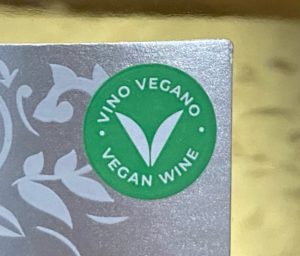All about wine
Organic and Vegan Wines
Organic and Vegan Wines
With our Low Sugar and Organic Wine blog posts (read Part 1 here and Part 2 here) being two of the most read on our blog, we thought we would follow up again with some new wines our stores are carrying. All organic and/or vegan, these wines have been certified and approved of their status by different growing, harvesting, and winemaking methods.
Organic Wines
To be approved as a certified organic wine, the grapes must be grown without the use of chemical herbicides or synthetic pesticides. Everything that goes into the wine, such as yeast, must be organic as well. Sulfites (commonly used to stop the fermentation process) are also prohibited from being added to the wine.
However, there is wine that is labeled as being made with organic grapes- this is different than organic wine. Wine labeled as being made with organic grapes must be produced with 100% certified organic grapes, but the yeast and any other additives do not need organic certification. While this wine can also have small amounts of sulfites (up to 100 parts per million), it cannot be produced using certain methods (such as genetic engineering).
The Alcohol and Tobacco Tax and Trade Bureau and the USDA must approve all standards of organic alcoholic beverages. Look for the green and white USDA Organic label on the bottle to see if a wine is certified organic.
| Cellar Collection Organic Red Wines
· Amore Organic Red Blend · Chaval Red Organic · Time Waits For No One · De Manzanos Organic Garnacha · Goru Organic Verde Red |
Cellar Collection Organic White/Rosé Wines
· Amore Organic White Wine · Amore Organic Rosé Blend · Chaval White Organic · Fontella Organic Pinot Grigio · Tussock Jumper Organic Pinot Grigio |
Vegan Wines
Most people turn and say, ‘Isn’t wine vegan anyway?’ and the short answer is no, it’s not. This has to do with the process called ‘fining’ which refers to how the wine is filtered. Filtering removes any protein, yeast, cloudiness, etc. from the wine before it’s bottled. Popular animal byproducts that are used in this fining process are bone marrow, egg albumen, fish oil, and gelatin. Over the years, however, plenty of non-animal byproducts have been discovered and created to make vegan wine. Carbon, charcoal, limestone, silica gel, and various vegetable plaques are all suitable options. Some winemakers opt not to use an alternative method and leave the natural particles in the bottom. Don’t fret when you see residue; it doesn’t mean the wine is contaminated!
| Cellar Collection Organic Red Wines
· El Goru Red · Goru Blue Vegan Monastrell · Ego Bodegas Fuerza Jumilla · Marques Escriba Monastrell |
Cellar Collection Vegan White Wines
· Curious White |




